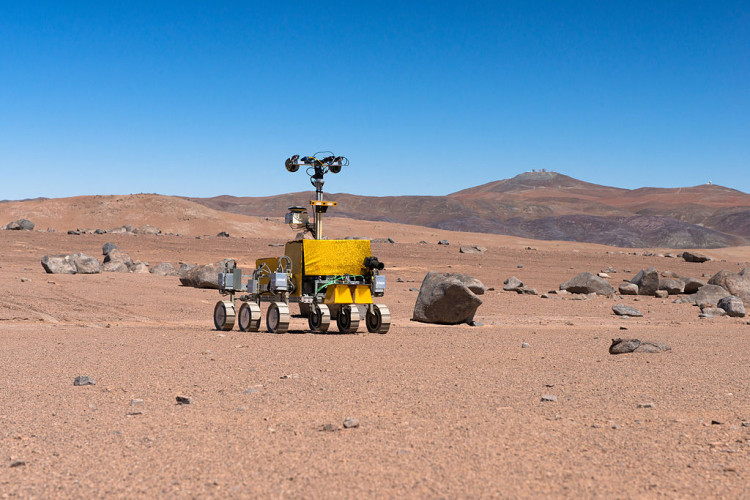The European Space Agency has suspended cooperation with its Russian counterpart in the aftermath of Russia's ongoing invasion of Ukraine, thus a European Mars rover built in collaboration with Russia will not launch to the Red Planet this year.
Officials from the ESA announced the decision Thursday, following a two-day conference of delegates from the agency's 22 member countries, all of which have imposed economic sanctions on Russia in reaction to its invasion of Ukraine. Germany, the ESA's largest contributor, halted all scientific cooperation with Russia in late February.
"Over the past two days, our Member States discussed the impact of the war in Ukraine on ESA's space programmes," ESA director general Joseph Aschbacher said on Twitter. "Together, we took a tough - but necessary - decision to suspend the launch of ExoMars foreseen for September with Roscosmos, and to study options for a way forward."
The decision on Thursday is a setback for the ExoMars rover project, which has been delayed since 2018 owing to parachute problems. It was most recently scheduled to launch in September on a Russian Proton rocket. Now that Roscosmos, Russia's federal space agency, will not be launching the mission, ESA officials are assessing various paths forward with the program.
The ExoMars rover is the second of two missions that make up the ExoMars program. It is named Rosalind Franklin after a British chemist whose work was instrumental in decoding the structure of DNA. The mission, which was designed to look for signs of life in Mars' atmosphere as well as beneath the planet's surface, has been beset by difficulties and delays for years.
Originally planned as a collaboration with NASA, the mission was canceled in 2012 after the American space agency withdrew from the project due to budget constraints imposed by then-President Barack Obama's administration. At the time, the Russian space agency Roscosmos stepped in to help fill the void created by NASA's withdrawal.
Roscosmos built a landing pad for the rover and planned to launch it from Kazakhstan's Baikonur Cosmodrome aboard a Proton rocket. The launch, which was originally slated for 2018, was pushed back to 2020 due to issues with the landing parachutes, and then pushed again to late September 2022.
It's unclear whether the project could still use the landing platform built by Russia, or whether any hardware would have to be rebuilt at a cost to NASA.
As a result of the sanctions, Russia terminated its cooperation with the European spaceport in French Guiana. Arianespace has been using Russia's mid-size Soyuz rocket to augment its heavy-lift Ariane 5 and light-weight Vega rockets since 2011.
According to the statement, ESA is now evaluating other launch options for four missions that were previously slated to fly on Soyuz.





